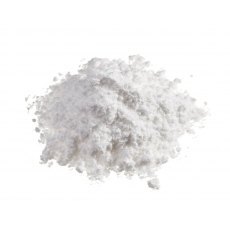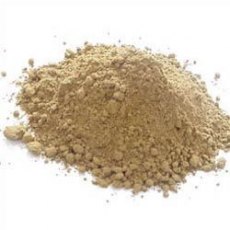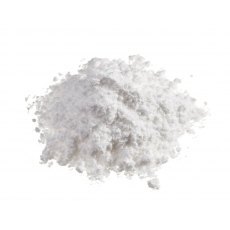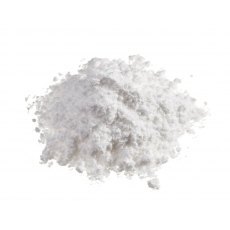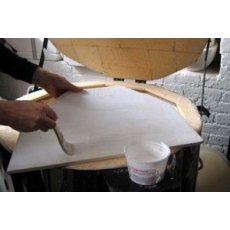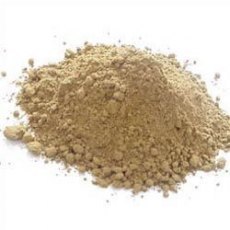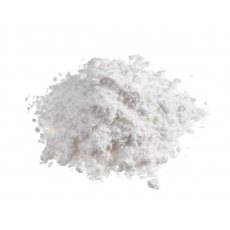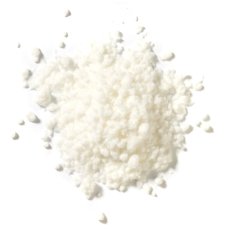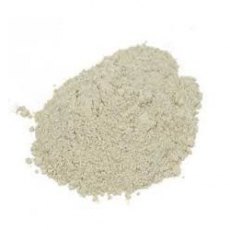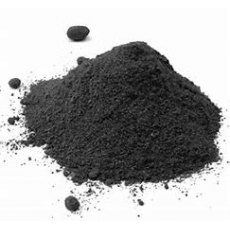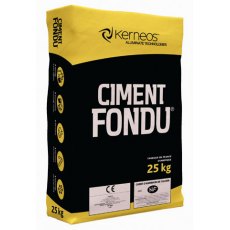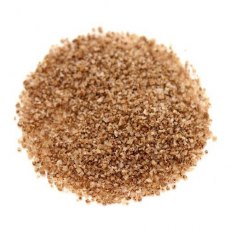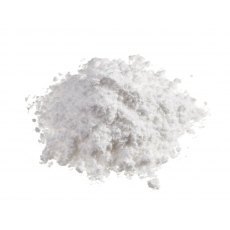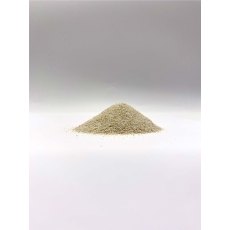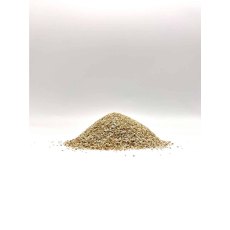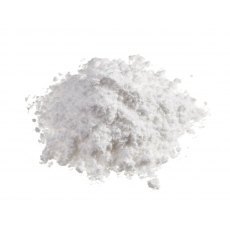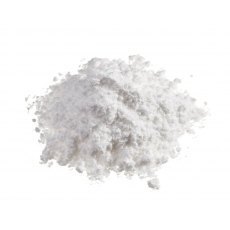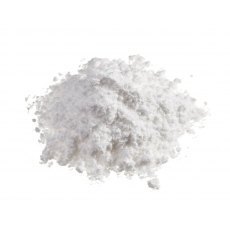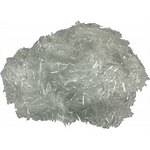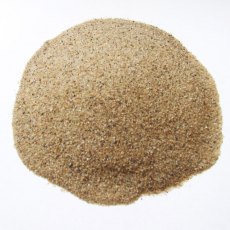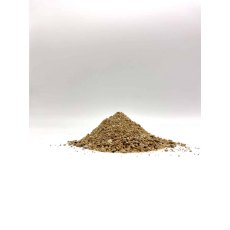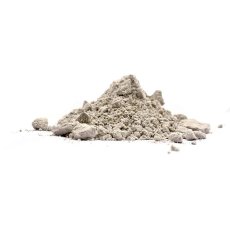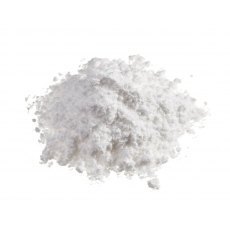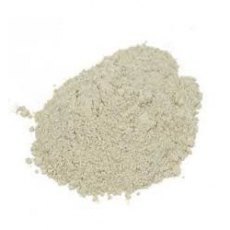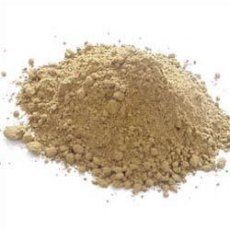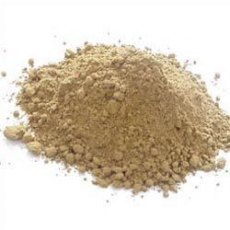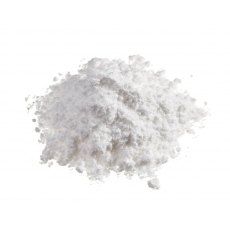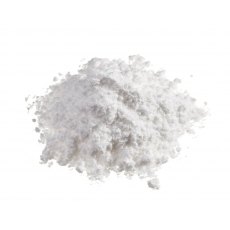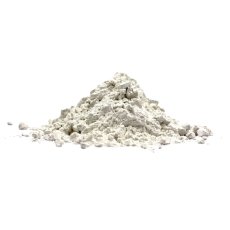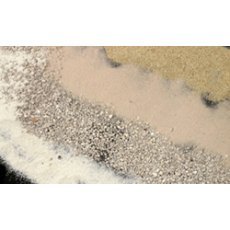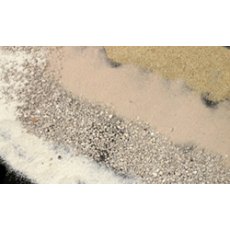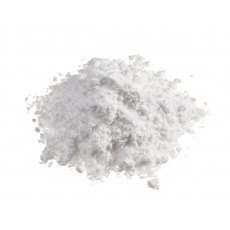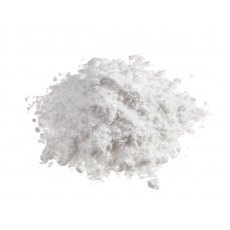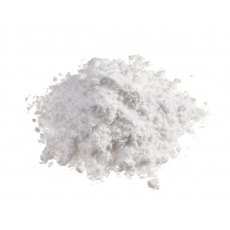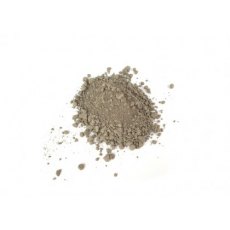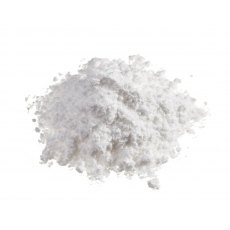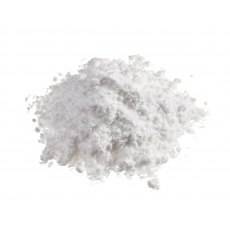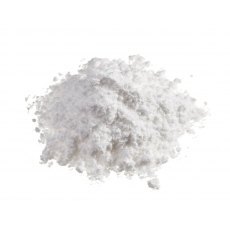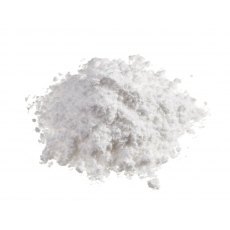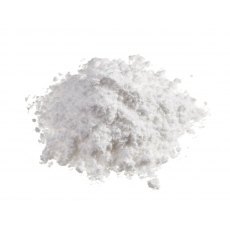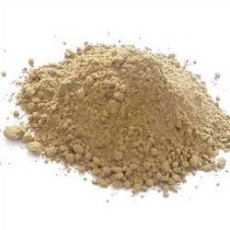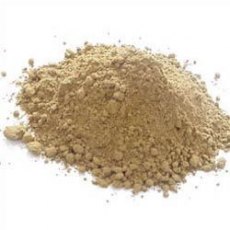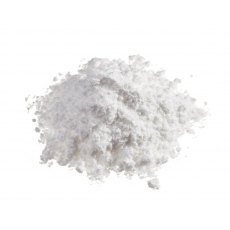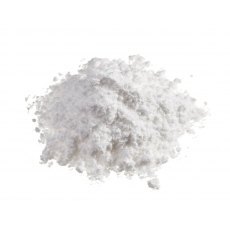Raw Materials
Alumina Hydrate
Used to introduce alumina into glazes, alumina hydrate promotes opacity and a matte finish and increases hardness and durability. Can help with removing of finely dispersed bubbles in glazes.
It can also be used in kiln wash or to protect kiln furniture in salt firings. A 60:40 ratio china clay to alumina can be used to make your own Batt Wash.
from £8.30 inc VAT
AT Hymod Ball Clay
A Dorset Ball clay. It's special feature is a high iron, high strength, useful in the production of warm coloured textured bodies at stoneware temperatures. It has an exceptionally small particle size. Fires brown, having almost 2% Fe2O3.
from £1.51 inc VAT
Barium Carbonate
A high temperature flux, which can also be added in small quantities (0.2-0.8%) to slips and low fire bodies to reduce solubility of salts and prevent 'scumming'.
Barium carbonate is also popular for the production of crystal matte glazes, BaO readily forms crystalline phases during cooling. Barium carbonate can act to initiate crystal development in other glazes, some metallics can benefit...
from £8.30 inc VAT
Batt Wash

This product will prevent drops of glaze from sticking to the bottom of the kiln or the kiln shelves. The wash binds with the glaze to make a brittle material that can easily be scraped off. It is recommended that the shelves be coated with a new coat of wash before each firing.
Kiln shelves are quite expensive, so anything you can do to save them is well worth it!
It is made by mixing with...

from £8.45 inc VAT
Bentonite

Extremely plastic colloidal clay used in bodies (up to 5%) to increase plasticity and in glaze (up to 2%) as a suspending agent. More than 3% can cause cracking of the unfired glaze layer due to the high drying shrinkage rate.

from £3.10 inc VAT
Bone Ash
A secondary flux in glazes and occasionally used as an opacifier. The essential constituent used to produce translucency in bone china bodies. Typically made from ground, calcined animal bones, bone ash is a source of calcium phosphate.
This is a natural product. Our supplier states: "The material that we supply is a naturally occurring crystalline mineral powder, in the form of Hydroxyapatite...
from £10.40 inc VAT
Cellulose Fibre
Super white cotton wool like fibres for adding to clay and slips to increase strength. Used in production of paper clay. No soaking or mashing required, mix directly with clay or slip.
Sold in 1kg packs.
£7.44 inc VAT
China Clay
China Clay also known as kaolin.
A refractory, low plasticity white firing clay used widely in glazes and bodies as a source of alumina and silica.
When added to glazes it will stiffen and melt effectively increasing the firing range of the glaze.
A refractory, low plasticity white firing clay used widely in glazes and bodies as a source of alumina and silica.
from £3.00 inc VAT
Ciment Fondue (Grey)
Ideal for both casting and sculpting, Ciment Fondu is widely used by sculptors because it is extremely hard and quick setting and gives superb detail. Using Ciment Fondu and an stone aggregate for a concrete mix has replaced stone for certain types of work. Because it is cheap, hard, tough, and durable, it is particularly suitable for large outdoor projects, especially decorative wall surfaces and...
from £2.40 inc VAT
Coarse Silica Sand
Silica sand can be used for in various ways in ceramics. It can be used to protect kiln shelves by spreading a fine layer under your ware to catched glaze drips. It can also be added to glazes as the 'silica' content, however this is less common. Can be added to a clay body, they help glaze fit and make the body more refractory.
16-30 Mesh
from £1.68 inc VAT
Colemanite
A naturally occurring source of Boron. A powerful primary or secondary flux in glazes. It intensifies the effect of colouring oxides. It also increases craze resistance in glazes.
from £10.00 inc VAT
Corderite Grog 0 - 0.5mm
Gives finer clays a useful bite. Manufactured using refractory graded materials, Corderite grog fires to a warm buff and has similar thermal shock properties to Molochite, however they are cheaper.
Size 0 - 0.5mm
from £6.05 inc VAT
Corderite Grog 0.5mm - 1mm
Gives finer clays a useful bite. Manufactured using refractory graded materials, Corderite grog fires to a warm buff and has similar thermal shock properties to Molochite, however they are cheaper.
Size 0.5mm - 1mm
from £6.05 inc VAT
Cornish Stone

Decomposed granite, used as a secondary flux in silica glazes and as an alternative to feldspar due to higher content. Low iron content. Gives good whiteness.

from £4.20 inc VAT
Dolomite

Natural source of calcium and magnesium. Useful as a secondary flux in porcelain and stoneware glazes.

from £2.85 inc VAT
Fibreglass Chopped Stands 12mm
12mm
Fibreglass Strand also known as Chopped Strand or Choppies, is used to reinforce resin, plaster, cement and Jesmonite casts. Ideal for smaller items where scrim and fibreglass mat is too bulky or awkward to use.
Can be mixed heavily with resin to produce a putty like consistency, which can be applied to awkward areas more easily.
from £10.68 inc VAT
Fine Silica Sand
Silica sand can be used for in various ways in ceramics. It can be used to protect kiln shelves by spreading a fine layer under your ware to catched glaze drips. It can also be added to glazes as the 'silica' content, however this is less common. Can be added to a clay body, they help glaze fit and make the body more refractory.
60's Mesh
from £1.68 inc VAT
Firebrick Grog 0-5mm - 25kg
0-5mm graded and dried firebrick grog. Suitable for the roman block method of mould making.
Crushed firebrick makes an excellent aggregate for a castable refractory, e.g. high heat refractory concrete. This type will survive in real high heat and can be used for hot-face applications.
The mix of Firebrick Grog, which is a refractory or heat-resistant aggregate, mixed with a heat-resistant cement,...
£29.88 inc VAT
Flint
Very refractory material used to provide silica in bodies and glazes. Increases firing temperature and craze resistance but reduces plasticity and shrinkage.
from £3.00 inc VAT
Gillespie Borate

Gillespie Borate also know as Gerstleys Borate, Gillespie Borate is a blended borate mineral for use in glaze formulas replacing Gerstley Borate.
Consistency - Manufactured from high purity refined raw materials, Gillespie Borate™ is highly consistent from batch to batch.
Oxide Match - Virtually identical to Gerstley Borate, this product requires no adjustment to formula and no extra...

from £16.49 inc VAT
Grolleg China Clay
Grolleg has a lower iron content and is a little stronger with high plasticity. A refractory, medium plasticity white-firing clay used mainly in white earthenware, bone china and porcelain clay bodies.
A blended English china clay, combining moderate plasticity, low titania content and relatively high flux content, low shrinkage and blue-white fired color. The low Tio2 content is a key factor for...
from £3.76 inc VAT
HVAR Ball Clay
Low plasticity white-firing ball clay.
Whiter firing than TWVA (34061).
Popular in many stoneware bodies.
from £2.30 inc VAT
Hyplas 71 Ball Clay

High plasticity cream firing ball clay for pottery clay bodies.
Recommended for earthenware or stoneware body formulations.
Fires ivory buff colour.

from £2.25 inc VAT
Lead Bisilicate
Lead Bisilicate is a 'true' Lead Bisilicate in that it contains 65-66% Lead Oxide, 32% Silica and 2% Alumina which acts as a stabiliser. This formulation allows for two molecules of silica to bond with 1 molecule of lead forming a Lead Bisilicate.
Lead bisilicate is the frit generally used in low solubility glazes and standard borax frit for leadless glazes.
Low Sol.
from £13.34 inc VAT
Lead Sesquisilicate
Often chosen for artisitic glazes where food safety is not required, this low solubility frit has a ratio of 1 part lead to 1.5 parts silica.
from £25.44 inc VAT
Molochite 200s
Molochite 200’s is our finest grog, crafted from calcined China Clay, a highly refractory white grog known for its exceptional purity, durability, and heat resistance. With an ultra-fine particle size, it seamlessly integrates into clay bodies, slips, and engobes, enhancing stability and strength without compromising surface smoothness.
As an ultra-fine additive, Molochite 200’s is particularly...
from £6.00 inc VAT
Molochite 30-80

Molochite 30/80’s is a versatile, medium-coarse grog, made from calcined China Clay, a highly refractory white grog valued for its durability and heat resistance. Offering a balanced particle size, it provides excellent structural strength while maintaining a refined texture, making it a popular choice for both throwing and hand-building applications.
Fine grades of Molochite are used to reduce...

from £6.87 inc VAT
Molochite 80s
Molochite 80’s is a high-quality fine grog, made from calcined China Clay, a refractory white grog renowned for its superior durability and heat resistance. With its fine particle size, it enhances clay body stability while maintaining a smooth, refined texture, making it an excellent choice for delicate work, throwing, and slip applications.
Fine Molochite grades like 80’s are particularly...
from £5.96 inc VAT
Nepheline Syenite
A stronger flux than feldspar for uses both in glazes and bodies reducing maturing range.
from £2.29 inc VAT
Petalite
A secondary flux at both earthenware and stoneware temperatures, Petalite supplies lithium to clay bodies and glazes. It has a highly alkaline response to additions of copper and manganese. Can be added to clay bodies to increase thermal shock resistance and reduce risk of dunting.
from £6.87 inc VAT
Potash Feldspar

Norwegian sourced. Used as a flux in bodies and as a major constituent in glazes. It melts at approximately 1200c. Typically referred to as 'potash' if there is significantly more potassium than sodium.
Also known as Custer Feldspar

from £2.59 inc VAT
Powdered Fireclay

A good all round fireclay in granular form giving excellent stoneware properties. This product is in a raw, as dug state which is dried and pulverised. It may still contain some oversized particles.
Extensively used in all places like glass melting furnaces, boiler furnaces, chimney linings, pottery kilns, blast furnaces, reheating furnace and outdoor pizza ovens. Refractory cement is much more...

from £1.51 inc VAT
Quartz
Quartz is the mineral form of silica powder used in ceramic glazes and clay bodies. Can be used instead of flint in glaze recipes, but not an exact replacement in clay bodies.
(CRISTOBALITE)
from £3.12 inc VAT
Soda Ash
Also know as Sodium Carbonate. Used in the preparation of casting slips in combination with Sodium Silicate. Also a source of sodium in alkaline glazes.
Its solubility in water makes it effective as the alkaline glaze constituent of Egyptian Paste.
from £3.29 inc VAT
Soda Feldspar
Norwegian sourced. The strongest flux , more suitable for low temperature glazes and bodies.
from £2.52 inc VAT
Spodumene
A very active flux used in small amounts in glazes. Also added to bodies where its low expansion properties help thermal shock resistance.
from £24.00 inc VAT
Talc
Used in a body flux in conjunction with feldspar to reduce thermal expansion and increase thermal shock resistance. It can also be use as a secondary flux in glazes giving an opaque semi-matt / vellum finish.
from £3.95 inc VAT
TWVA (AK) Ball Clay

A blend of medium plasticity ball clays similar in properties to ESVA. White-firing but slightly lower plasticity than ESVA.
NOTE TWVA Ball Clay is the replacement for ESVA which has been phased out by the producers. Fires to a similar colour and has good plasticity.

from £1.72 inc VAT
TWVD Blu Ball Clay
This is a non carbonaceous clay with excellent workability. It has a thrixotropic nature and if used with other clays it will control the thrixotropy of casting slips. It is also ideal for tableware and calcareous earthenware. It can be also used as a glaze suspending agent.
from £1.55 inc VAT
Whiting
Principal source of lime in glazes. Under reducing conditions it assists in celadon colour development. Assists hardness and durability and in large quantities produces mattness. Calcium Carbonate.
from £2.88 inc VAT
Wollastonite
Primarily used as a secondary flux. An alternative source of calcium and used in both earthenware and stoneware glazes.
from £4.75 inc VAT

